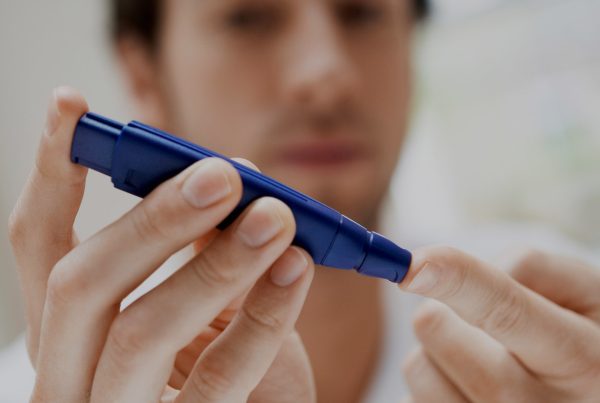The thyroid gland is a small gland that sits in front of the windpipe and works with the pituitary gland to know how much hormone needs to be secreted to keep you healthy. The thyroid gland takes iodine, found in many foods and iodized salt, and converts it to thyroid hormones. There are two conditions that can affect the thyroid gland. One is hypothyroidism, which is when you have an underactive thyroid. The second condition is hyperthyroidism, which is when you have an overactive thyroid and produce too much thyroid hormone.
Thyroid disorders affect an estimated 200 million people worldwide, including an estimated 27 million Americans. In fact, thyroid disease is more common than diabetes or heart disease. Yet it is believed that more than half of all thyroid problems remain undiagnosed. Women are five to eight times more likely than men to have thyroid problems. One woman in eight will develop a thyroid disorder during her lifetime. Hypothyroidism, or low thyroid function, is a silent epidemic, according to many functional medicine doctors. People can suffer for years with symptoms that our conventional medical system frequently doesn’t know how to treat because complaints seem scattered or vague.
Lots of things can trigger thyroid problems, including genetics, an autoimmune attack, pregnancy, stress, nutritional deficiencies, or toxins in the environment. Untreated thyroid disease may lead to elevated cholesterol levels and subsequent heart disease, as well as infertility and osteoporosis. Research also indicates a strong genetic link between thyroid disease and other autoimmune diseases, including certain types of diabetes, arthritis and anemia. Having a healthy thyroid is important, and treating conditions of the thyroid is important for it to return to being healthy. There are lifestyle changes you can use to get and keep a healthy thyroid.
Often, making dietary adjustments and taking herbal supplements can be your first line of defense in treating hypothyroidism. These options may have fewer side effects than taking thyroid medicine. Many people with hypothyroidism experience crippling fatigue and brain fog, which prompts reaching for non-nutritional forms of energy like sugar and caffeine. These can burn out your thyroid (and destabilize blood sugar). Diet substitutions and herbal supplements are two ways you can help your thyroid condition. These options may have fewer side effects than taking thyroid medicine. Here are a few natural remedies to consider adding to any treatment plan:
- Selenium – According to the National Institutes of Health (NIH), selenium is a trace element that plays a part in thyroid hormone metabolism. Many foods on the market today contain selenium, including grass-fed beef, tuna, turkey, and Brazil nuts.
- Probiotics – The NIH studied the link between hypothyroidism and small intestine problems. These problems included an overgrowth of bacteria, such as yeast. Probiotic supplements contain live bacteria that can help keep your stomach and intestines healthy. Besides supplement forms, fermented food and drink, such as kefir, kombucha, raw cheese, and yogurt contain useful probiotics,
- Wild-caught fish — These provide the omega-3 fatty acids EPA and DHA, essential for hormone balance and thyroid function. Fish such as wild-caught Alaskan salmon, Atlantic mackerel and Pacific sardines are some of the best sources.
- Sugar-Free Diet – Sugar and processed foods can lead to increased inflammation in the body. Also, sugar only boosts your energy level in the short term, eliminating it from your diet may help regulate your energy levels. Additionally, removing sugar from your diet may help your skin and stress levels. It’s not easy to adopt a sugar-free diet, but the benefit to your thyroid health may be worth it.
For many, the advantages of adopting a natural thyroid treatment plan outweigh the disadvantages. There’s no such thing as a hyperthyroidism diet, but what you eat matters. By eating certain foods, you can limit some mild hyperthyroidism symptoms. Berries, cruciferous vegetables like broccoli, vitamin D and omega 3s may help ease symptoms. As always, you should discuss any treatment plans with your doctor before starting them.



